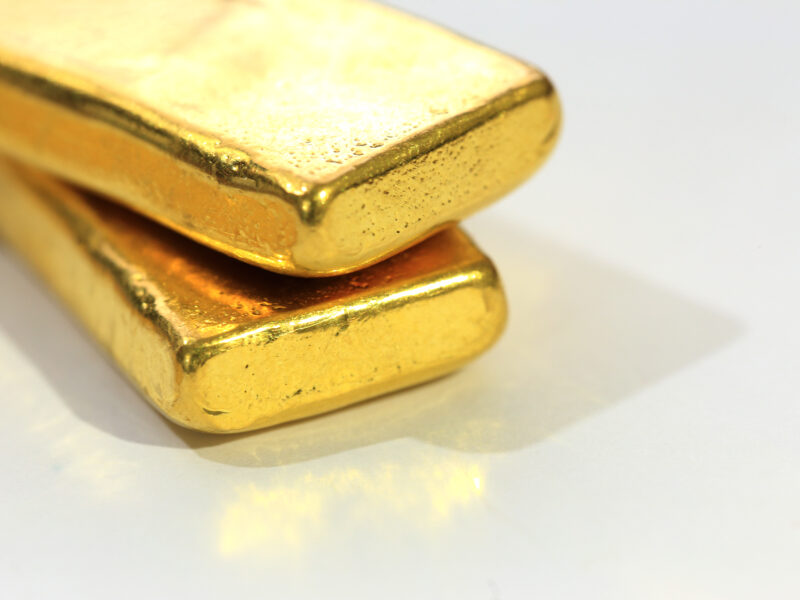
Ukraine’s counteroffensiveRussia may be facing new economic difficulties as the international sanctions that continue to hit it could lead to large swathes Russian-occupied territories being recaptured.
The military of Ukraine has enjoyed remarkable success recently, taking back Russian-occupied territory to the northeast and southern regions. Now, Kyiv is hoping to liberate the LuhanskThe eastern Donbas is the location of one of two proRussian self-declared “republics”.
Holger Schmieding (chief economist at Berenberg) said recent Ukrainian military gains may have a negative impact on Russia’s economy.
Schmieding wrote last week that “even more than ever, the Russian economic looks set to descend into an gradually deeper recession.”
“The increasing costs of wars that are not working well [Russian President Vladimir]Putin: The costs of suppression of domestic dissent, and the slow but harmful impact of sanctions, will most likely cause the Russian economy to collapse faster than when the Soviet Union was destroyed 30 years ago.
He highlighted that Russia’s main bargaining chip when it comes to the international sanctions imposed by the West – its influence over the energy market, particularly in Europe – was also waning.
“Although Putin closed the Nord Stream 1 pipeline on 31 August, the EU continues to fill its gas storage facilities at a slightly slower but still satisfactory pace,” he noted, adding that even Germany — which was particularly exposed to Russian supplies — could even get close to its 95% storage target ahead of winter.
Energy problems
For the Kremlin, Europe’s fast shift away from Russian oil is especially painful. The Economist Intelligence Unit estimates that the Russian energy sector accounts for about a third, half of Russian fiscal revenue, and 60% of Europe’s exports.
In August, energy revenues dropped to the lowest point in more than a year. Moscow cut off gas flows to EuropeTo try to force European leaders into lifting sanctions. Since then, the Kremlin was forced to sell significant discounts to Asia for oil.
A decline in oil exports has led to a substantial reduction of the country’s surplus budget.
Russia is aware that its power in Europe’s energy war against Russia has been eroded. CNBC was told by Agathe Demars, EIU Global Forecasting Director. “The EU will be free from Russian gas dependence in two- or three years.”
She suggested that Russia’s decision to stop gas flow to Europe is due to this fact. The Kremlin was aware of the possibility that such a threat might be less significant in several years.
The GDP is falling
According to the EIU, Russia’s GDP will contract by 6.2% and 4.1% this year. Demarais stated that it was “huge” according both historical and international standards.
Russia didn’t experience recession after it was placed under Western sanctions for the first time in 2014. She said that Iran was completely cut off from Swift by Western sanctions in 2012. This is something that Russia has yet to experience.
There are few statistics available on Russia’s economic state. The Kremlin is keeping its cards close. However, Bloomberg reported earlier this monthCiting an internal document that Russian officials have obtained, it is claimed they are worried about a more severe and persistent economic decline than what their public statements suggest.
Putin repeatedly claims that Russia is managing with Western sanctions. However, Andrei Belousov, Russia’s First Vice Prime Minister, stated last month that the inflation rate will be between 12-13% by 2022. This figure is far lower than the most dire projections made earlier this year by global economists.
Russian GDP declined by 4% over the second quarter, according to Rosstat. Russia has also revised its economic forecasts in recent months. Russia projects that Russia will experience a contraction in 2022 at 2.9% and 2023 at 0.9% respectively, with a return to growth of 2.6% for 2024.
Demarais maintained that the data was “pointing to a collapse domestic consumption and double-digit inflation, sinking investment” with withdrawal of 1000 Western firms likely to impact “employment and access for innovation.”
The real effect of sanctions on Russia is likely to be felt over the long-term, however. She said that sanctions would limit Russia’s ability “to explore and develop new energy resources, particularly in the Arctic Region.”
Funding the development of these areas will be almost impossible due to Western penalties. U.S. sanctions also make Russia’s export of technology impossible.”
Sanctions “here to stay”
Last week, she delivered the State of the Union Address. European Commission President Ursula von der Leyen lauded the impact of EU sanctionsThe claim that Russia’s financial industry is “on life support”
Three quarters of Russia’s banking industry have been cut off from foreign markets. She said that nearly one thousand companies from abroad have fled the country.
“Last year, the production of cars dropped by three-quarters. Aeroflot grounded planes due to lack of spare parts. Because they run out of semiconductors, the Russian military has taken chips from refrigerators and dishwashers in order to repair their military hardware. Russia’s industrial sector is in disarray.”
The Kremlin “put Russia’s economy on the path to oblivion”, she said, and promised that sanctions “were here to stay.”
Von der Leyen declared, “This time is for us to show resolve not appeasement”.
While the Kremlin tries to increase security ties after having been ignored by the West last week, a high ranking Russian official claimed that Moscow considers strengthening strategic ties to China a crucial policy objective. Putin was also able to meet Chinese President Xi Jinping at Uzbekistan last Wednesday, pledging a “no limitations” relationship.
However, many commentators noted that Russia’s negotiation power on the international stage is waning. China will hold most of the cardsThe two superpowers are trying to build further cooperation.
Demarais, an EIU official, said that China would be Russia’s only economic option in the long-term. However, this will prove difficult as China is wary about becoming dependent on Russian products.


